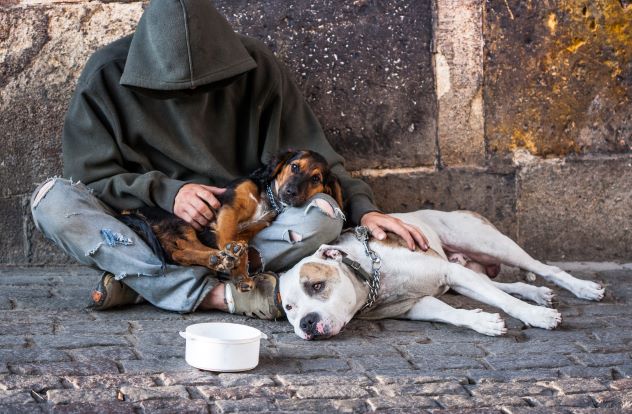Homelessness affects thousands of Canadians nationwide, leaving them without safe and stable housing. If you’re experiencing this unfortunate situation, what can you do to receive the essential care you need?
Continue reading to learn more about what to do if you’re going to be homeless, including what support is available to help you recover.
What is Homelessness?
Homelessness is the situation of a person or family without stable, permanent, and safe housing or the immediate ability to acquire it. There is a misconception that homelessness only impacts certain parts of the Canadian population, but anyone can experience this issue. Between 25,000 to 35,000 Canadians experience homelessness on any given night.
There typically isn’t a single reason why someone experiences homelessness. It can be a factor of societal barriers, lack of affordable housing, financial situations, and other factors. Most people don’t choose to become homeless and cannot just “get a job.”
Who Experiences Homelessness?
Canadians experiencing homelessness come from different backgrounds, including age and gender. While anyone can become homeless, some groups may be more at risk, such as:
- Indigenous people
- People with mental health issues or addictions
- Single adult men
- Women with children fleeing violence
Around 52% of people who experience homelessness are adults ages 25–49. Indigenous peoples (Métis, Inuit, First Nations) make up between 28–34% of the homeless shelter population. Finally, people between the ages of 13–24 make up approximately 18% of the population facing homelessness.
It’s important to note that not everyone experiencing homelessness lives on the streets every night. Some people stay in places not meant for human living, but others may be staying in emergency shelters or be at risk of homelessness.
Others may not show up in current shelters or on the streets, living with relatives or friends. These people still live without a permanent dwelling, known as hidden homelessness.
How Does Someone Become Homeless?
Someone can become homeless for many different reasons. It’s a multifactorial problem, meaning there is no singular cause of homelessness. Some key factors relating to homelessness are poverty, structural factors, system failures, housing, and more.
The causes of homelessness include:
- Structural factors: Lack of adequate income, access to affordable housing, health supports, discrimination, & economic shifts can lead to homelessness
- Poverty: People living in poverty cannot afford necessities, potentially making them a paycheque away from homelessness
- Housing: A lack of safe, affordable, & stable housing directly contributes to homelessness
- System failures: System failures occur when other care & support systems fail, requiring vulnerable people to consider homelessness
- Personal circumstances & relational problems: Traumatic events, personal crisis, mental health & addiction challenges, & family violence can contribute to homelessness
- Domestic violence: Domestic violence can force individuals to leave their homes suddenly without proper support
If any of these factors affect you, what resources are available?
What Should You Do if You’re Going to be Homeless?
Most people assume homelessness will never affect them, but it can happen to anyone. While homelessness can seem like the end, you aren’t stuck in this predicament—you can improve your situation with available support. Whether it’s due to domestic violence, poverty, or personal circumstances, what should you do if you’re about to be homeless?
Ensure Your Safety
First, ensure your safety. No matter why your living situation is compromised, get somewhere safe. If you’re in immediate danger (such as a violent altercation), call 911.
If you can travel, either with your car or public transportation, go to a public space such as a:
- Police station
- Library
- Shopping centre
Once you’re in a safe area, you can figure out your next steps.
Calm Yourself as Best as You Can
If you’re experiencing homelessness, you may feel hopeless, anxious, or stressed. These feelings are normal, but try to relax as best as possible.
Homelessness can be a transitionary period—many are only in this situation for a short time. Most stays in shelters are brief, with youth and adults staying an average of 10 days. Older adults and families tend to stay around 20 days.
Check With Your Personal Connections
Your connections can help you out if you have any available. Consider reaching out to someone, even if you feel it won’t work out.
Speak with friends and family to see if anyone can let you stay for a couple of days. If you’re a part of any religious, cultural, sports, or other communities, see if anyone may be willing to help.

Check What’s Available in Your Local Community
It’s unfortunate, but many people become homeless because they have no one else to lean on. In this case, you can see what services and programs are available in your local community.
Many cities have 211 or 311 numbers you can dial for free. These services can help you contact community organizations, such as:
- Food banks
- Housing help centres
- Shelters
- Drop-in centres
- Meal programs
If you have internet access, the Canadian Alliance to End Homelessness (CAEH) website has links to local organizations in different provinces across the nation.
Homelessness can be scary due to its uncertain nature, but you have support available. Whether with friends, family, or a local organization, you can find the help you need.
If you need assistance or support, contact us today.



